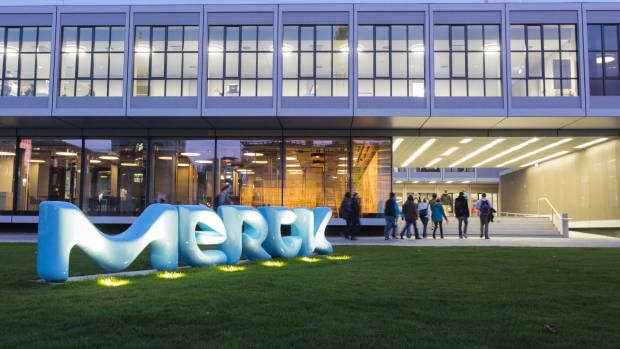Dec 5, 2023
Merck KGaA’s Multiple Sclerosis Drug Fails Final-Stage Studies
, Bloomberg News

(Bloomberg) -- Merck KGaA plunged after an experimental multiple-sclerosis drug failed in late-stage trials, a blow to the German company’s plans to drive growth with another blockbuster medicine.
Evobrutinib didn’t show strong enough efficacy in two final-stage studies of people with relapsing multiple sclerosis, Merck said late Tuesday. On Wednesday morning its shares dropped as much as 14% in Frankfurt trading, the most since 2009, erasing more than €5 billion in market value.
The surprise drug failure creates a third big challenge for the German conglomerate. Its life science unit has been suffering from a collapse in demand for Covid-related products while the electronics division is reeling from a prolonged slump in the semiconductor industry.
Merck’s healthcare division — its third pillar — had been banking on evobrutinib to help drive growth in the coming years. Instead, revenue for the unit could stay flat through 2027 and profitability may suffer, Thibault Boutherin of Morgan Stanley said in a note.
The analyst had modeled €2.5 billion ($2.7 billion) in peak sales for the drug and said that before the setback, investors were hoping it would be better than existing medicines, even though there were some questions about its safety. Now, investors will have to reassess their expectations for Merck’s growth.
‘Straight Failure’
“Even bears were not expecting a straight failure of the trial on efficacy,” Boutherin said.
The setback could increase pressure on Chief Executive Officer Belen Garijo to resort to deals to bolster the pharma pipeline. Garijo has repeatedly said that Merck has a war chest of some €20 billion for dealmaking and that her team is constantly evaluating potential acquisitions large and small.
Such a step would be welcome given the company’s thin late-stage pipeline of experimental drugs, Michael Shah, an analyst at Bloomberg Intelligence, said in a note.
Evobrutinib failed to meet the primary endpoints in the trials of reducing the rates of relapse in people with the most common form of MS compared to patients receiving French drugmaker Sanofi’s medicine Aubagio.
Surprisingly, patients taking Aubagio actually had better outcomes than was expected based on that medicine’s previous studies, Merck said in a statement.
That was the main driver of the trial failure, since evobrutinib still showed “strong efficacy,” analysts for Citi said in a note. Aubagio, meanwhile, was “way ahead of expectations.”
A so-called BTK inhibitor experimental medicine, evobrutinib has had a bumpy road through clinical trials. In April, the US Food and Drug Administration placed a partial hold on the trial after two reported cases of patients who appeared to have suffered liver injury during the study.
Problems have also arisen for similar products being studied by Sanofi and Roche Holding AG.
With these results, investors will probably raise questions about the prospects for the Sanofi and Roche medicines, too, Citi said.
Attention will now turn to xevinapant, another late-stage experimental medicine that Merck is studying in head and neck cancer.
Darmstadt, Germany-based Merck is unrelated to the US-based Merck & Co.
--With assistance from James Cone and Angela Cullen.
(Updates with second paragraph, analyst comment in eighth paragraph)
©2023 Bloomberg L.P.





